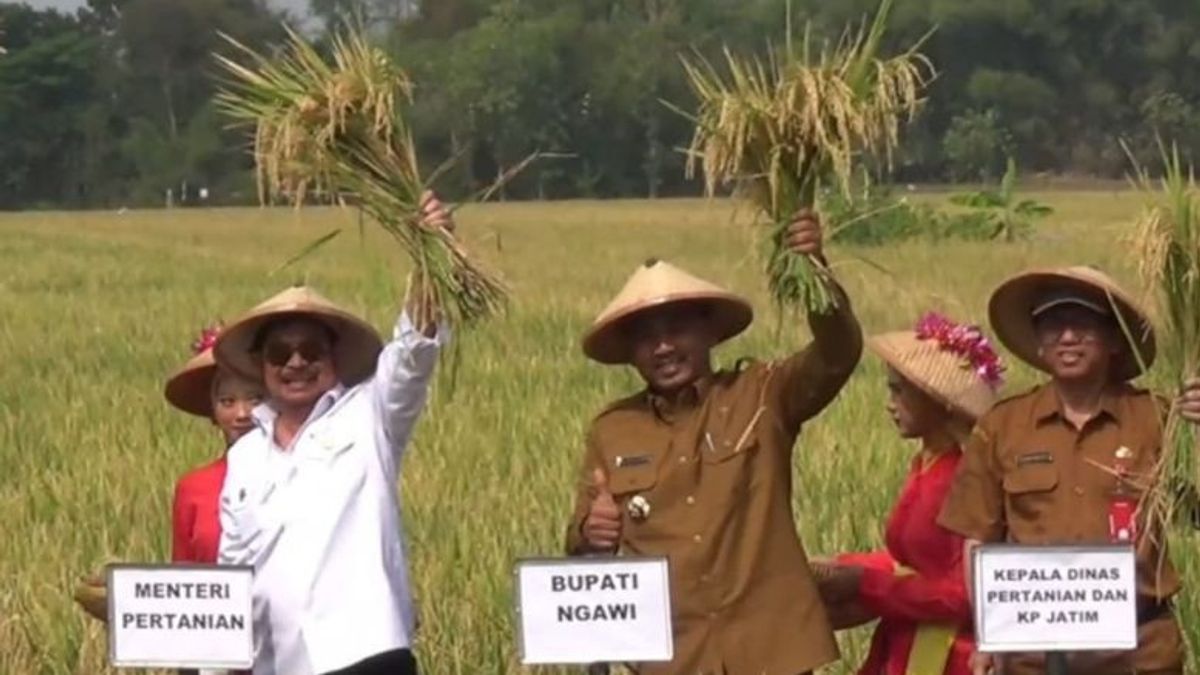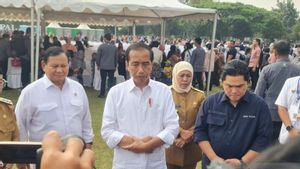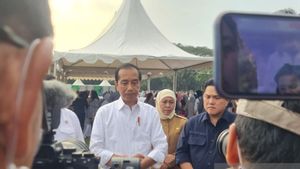Minister of Agriculture (Mentan) Syahrul Yasin Limpo stated that Ngawi Regency is one of the areas in East Java (East Java) that is prepared as a buffer zone for food barns if El Nino's natural phenomenon hits Indonesia in the 2023 dry season.
"Today in this area, namely the Geneng sub-district, we agreed to booster by optimizing the existing land starting in August for a span of 1,000 hectares. We hope that this will be the case for El Nino," said the Minister of Agriculture while harvesting rice, in Kresikan Village, Geneng District, Ngawi reported by ANTARA, Monday, July 24.
According to him, the preparation effort was carried out by providing assistance with modern seeds, organic fertilizers, and agricultural equipment and machinery (alsintan), so that rice production results increased. Farmers also receive KUR loan assistance, so they can produce with low interest.
According to the data, local farmers' harvest can produce up to 8 tons of unhulled rice per hectare. These results are above normal, which ranges from 6 to 7 tons per hectare.
"By looking at the harvest like this, Ngawi's durability can definitely contribute to the interests of East Java and nationally," said the Minister of Agriculture again.
His party also asked the regional head and local forkopimda to intervene in supervising the preparation, so that the provision of food barn areas can be maximized.
The Minister of Agriculture explained that the Ministry of Agriculture has carried out mitigation by having three regional divisions in dealing with the El Nino phenomenon, namely green areas that have a large enough water capacity under any conditions.
Then areas with limited water supply, namely areas that require technological intervention and mechanization of varieties to support agricultural activities, and the last is red areas.
"This red area is what we need to prepare for the barn, because it does not have water supply," he said.
SEE ALSO:
In addition to mitigation, adaptation efforts to the El Nino phenomenon are an important effort in agricultural cultivation activities. For areas that still have sufficient water availability for cultivation activities, it is recommended to accelerate planting.
Efficiency, effectiveness, and optimization as well as anticipatory to water consumption are the keys to the success of cultivation during El Nino. In addition, adaptation efforts can be made are by using varieties of seeds that are tolerant of drought.
The role of the government as a policy regulator will also determine the success of the agricultural sector against El Nino.
With agricultural instructors in the field, they are at the forefront with farmers in maintaining national food availability through domestic production and maintaining the contribution of the agricultural sector in the economy.
The English, Chinese, Japanese, Arabic, and French versions are automatically generated by the AI. So there may still be inaccuracies in translating, please always see Indonesian as our main language. (system supported by DigitalSiber.id)

















